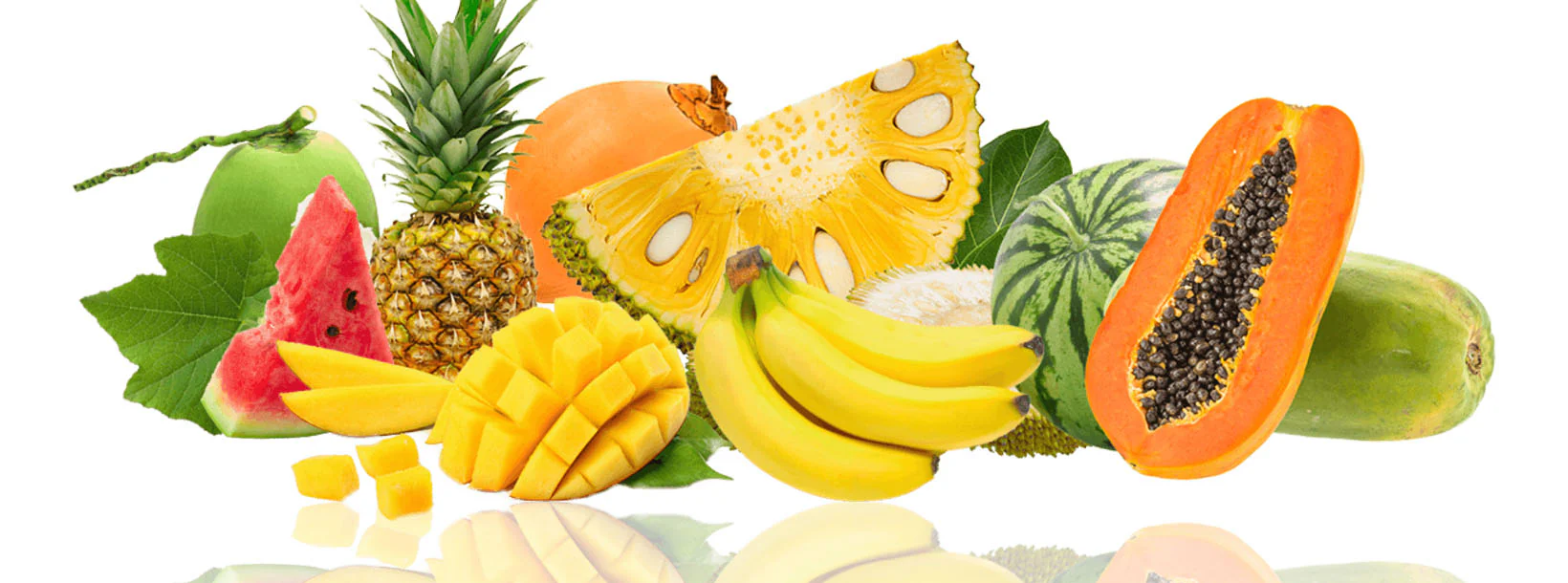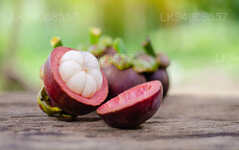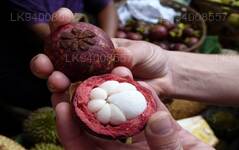
Fruits
Sri Lanka boasts a vibrant array of tropical fruits that reflect its rich agricultural heritage. Among the most beloved is the king coconut (thambili), cherished for its sweet, refreshing water, perfect for quenching thirst in the tropical heat.
Mangosteen ෴ මැංගුස්
Mangosteen (Garcinia mangostana) is an exotic, tropical fruit with a slightly sweet and sour flavor.It’s originally from Southeast Asia but can be found in various tropical regions around the world.The fruit is sometimes referred to as purple mangosteen because of the deep purple color its rind develops when ripe. In contrast, the juicy inner flesh is bright white.Though mangosteen is a relatively obscure fruit, it shouldn’t be overlooked, as it may offer many health benefits due to its rich supply of nutrients, fiber, and unique antioxidants.
Here are 11 health benefits of mangosteen.
Highly Nutritious
Mangosteen is relatively low in calories yet provides many essential nutrients.
Rich in Powerful Antioxidants
Antioxidants are compounds that can neutralize the damaging effects of potentially harmful molecules called free radicals, which are linked to various chronic diseases.
May Have Anti-Inflammatory Properties
Plant compounds and fiber in mangosteen may have anti-inflammatory effects according to animal research. More studies are needed to understand how this fruit may reduce inflammation in humans.
May Have Anticancer Effects
Population studies show that diets rich in vegetables and fruits like mangosteen are associated with reduced incidences of cancer.
May Promote Weight Loss
In the health and wellness industry, one of mangosteen’s biggest claims to fame is its potential to aid weight loss.
Supports Blood Sugar Control
Both test-tube and animal studies show that xanthone compounds in mangosteen may help you maintain healthy blood sugar levels.
Promotes a Healthy Immune System
Fiber and vitamin C — both of which can be found in mangosteen — are important for a healthy immune system.
Helps Maintain Healthy Skin
Skin damage from sun exposure is a common occurrence worldwide and a major contributor to skin cancer and signs of aging.























